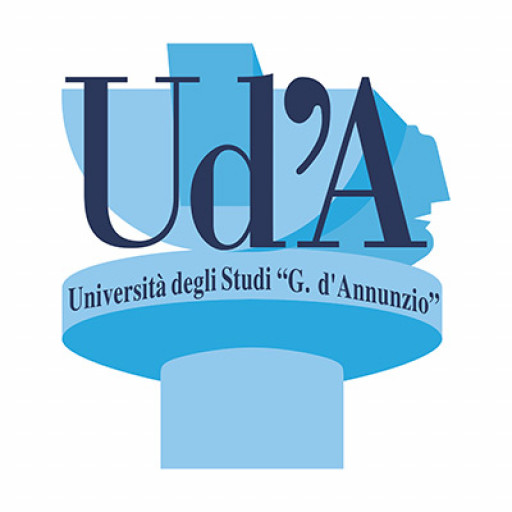Photos of university / #oxford_uni
This course is intended to give you experience in reading a range of primary exegetical texts in Classical Hebrew, Aramaic and Syriac, to develop research methodologies in the writing of a 15,000-word dissertation and to provide a solid basis in the subject area for those intending to go on to do original research.
Oriental studies graduates have found employment in many and diverse fields including business, finance law, civil service, journalism, government and industry.
Many graduates have also undertaken further research into subjects linked with Oriental studies and have pursued successful careers in the academic world, education and in museums.
Teaching for the compulsory core course is covered by a combination of lectures, seminars and tutorials covering the principal sources for exegesis of the Hebrew Bible/Old Testament, and select topics will be covered in Michaelmas and Hilary terms. These may include ancient Bible translations, Qumran texts, the New Testament, Rabbinic hermeneutics, Greek and Latin patristics, or early Syriac commentaries. They will be explored in the essays set which you will present in meetings with your tutor, either in one-to-one sessions or with one or two other students in related subjects (such sessions are known as ‘tutorials’).
For your other two papers, you will select two options from the following five:
- Hebrew biblical and exegetical texts
- Aramaic (Targum) texts
- Syriac biblical and exegetical texts
- Greek biblical and exegetical texts
- Latin biblical and exegetical texts.
Set texts in the first Semitic language (or in Latin and/or Greek if chosen) will be studied in classes in all three terms.
If required, intensive elementary language teaching in a second Semitic language followed by textual study is available in the first term, comprising two to three hours per week. Since elementary language teaching will start with the basics of the grammar, classes may be shared with beginners in other appropriate courses (Classical Hebrew, Syriac and Aramaic, at undergraduate or graduate level).
Most teaching for this Masters course will take place in small classes or tutorials, normally given mainly by the course convenor, Professor Alison Salvesen, but also supplemented by recommended lectures and seminars. You will be expected to prepare the language exercises or texts in advance of each class, in order to derive the maximum benefit from the intense form of study. Numbers of students on the course are very small (one or two per year) and so teaching is tailored according to the needs and interests of individual students. Classes are sometimes shared with those on other similar courses.
You will also be strongly encouraged to attend seminars in relevant areas: there are regular seminar series in Jewish Studies in the Greco-Roman Period, Patristic studies, Late Antique and Byzantine studies, Hebrew Bible/Old Testament, and New Testament, as well as special lectures given by visiting scholars.
Assessment takes place at the end of the academic year, and takes the form of three 3-hour examination papers (one on the compulsory core paper, and the other two on prescribed texts), plus a 15,000-word dissertation on some aspect of Bible interpretation in antiquity. The topic and title of the dissertation are chosen in consultation with your supervisor, and the dissertation itself will be submitted in the sixth week of Trinity term, before the examinations for the other papers.
The first examination paper consists of essay questions for the compulsory core paper on early translations and interpretations of the Hebrew Bible/Old Testament; you are required to answer three essay questions (out of at least seven that are set). On both of the two papers chosen as options you will be asked to translate into English three passages out of four from the set texts and comment on points of exegetical and other interest in them, and also to write one essay (out of a choice of four) on the background or aspects of the set texts. You will normally also be examined orally (viva voce), unless individually excused by the examiners.
In taught graduate degrees the pass mark is 50. In the MSt, a distinction may be awarded for a final overall mark of 70 or above. The final mark is arrived at as a numerical mean of the marks on individual papers, with the qualification that you must also pass on each paper individually.
Applicants are normally expected to be predicted or have achieved a first-class or strong upper second-class undergraduate degree with honours (or equivalent international qualifications), as a minimum, in any subject.
For applicants with a degree from the USA, the minimum GPA sought is 3.5 out of 4.0.
If you hold non-UK qualifications and wish to check how your qualifications match these requirements, you can contact the National Recognition Information Centre for the United Kingdom (UK NARIC).
You should have an adequate knowledge of Classical Hebrew or Aramaic or Syriac.
No Graduate Record Examination (GRE) or GMAT scores are sought.
- Official transcript(s)
- CV/résumé
- Statement of purpose/personal statement: Up to three pages
- Written work: Two essays of 2,000 words each
- References/letters of recommendation: Three overall, all of which must be academic
ENGLISH LANGUAGE REQUIREMENTS
Higher level
|
est |
Standard level scores |
Higher level scores |
||
|
IELTS Academic |
7.0 | Minimum 6.5 per component | 7.5 | Minimum 7.0 per component |
|
TOEFL iBT |
100 |
Minimum component scores:
|
110 |
Minimum component scores:
|
| Cambridge Certificate of Proficiency in English (CPE) | 185 |
Minimum 176 per component |
191 |
Minimum 185 per component |
| Cambridge Certificate of Advanced English (CAE) | 185 |
Minimum 176 per component |
191 |
Minimum 185 per component |
Want to improve your English level for admission?
Prepare for the program requirements with English Online by the British Council.
- ✔️ Flexible study schedule
- ✔️ Experienced teachers
- ✔️ Certificate upon completion
📘 Recommended for students with an IELTS level of 6.0 or below.
- Global Education
- Hill Foundation Scholarships









